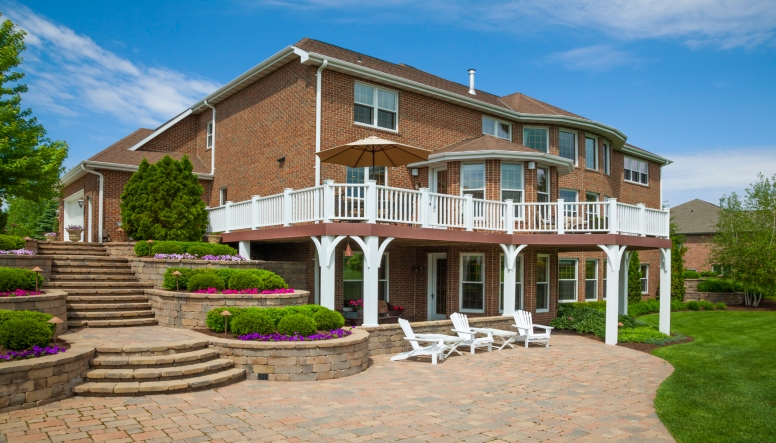Outdoor Classroom
Let your kids play in the dirt this summer
For trusted expertise and superior results,
find a landscape professional near you.

Looking for a landscape improvement that will turn heads, while doing something to benefit the natural environment and human communities? Why not consider a permeable or pervious paver hardscape project?
Permeable pavers (also called permeable interlocking concrete pavements, or PICP) and pervious pavers are concrete paving stones designed to allow rain water to pass through the paved surface instead of shedding it as surface runoff. A permeable paver system lets the water run down through the cracks between the pavers. Pervious pavers are paving stones or blocks that actually let water though the concrete itself. Both permeable and pervious pavers are available in a wide variety of colors, textures, shapes, and sizes, and can be used in place of traditional paving bricks to create stunning and unique driveways, patios, walkways, and even parking lots.
What's So Great About Permeable Pavers?
There are many reasons permeable pavers are fast becoming a favorite with designers and homeowners alike. To start, they’re sustainable. Depending on how your permeable paver system is set up, it will either allow rain water and snow melt to soak naturally into the earth, or divert it to a storage tank or retention pond for use in landscape irrigation, car washing, or other purposes.
The environmental benefits of a permeable pavement system include:
But, permeable pavers aren’t just for nature lovers. They offer many additional advantages to homeowners, including:
With all these great benefits, you might be wondering: “what’s the catch?” Every construction material has pros and cons. Permeable pavers can be a little more expensive to purchase than standard pavers, and up to 50% more than poured concrete or asphalt. They may not be appropriate for every soil type. And, they do require periodic minimal maintenance (easily provided by your local landscape company) to ensure continued permeability of the surface. However, many homeowners feel that the beauty and value they provide and their longevity more than make up for these extra costs.
Getting Started With Permeable Pavers
Proper ground preparation and installation is critical with permeable pavers. A permeable paver project must be engineered correctly for proper drainage and to hold in place under expected traffic.
The best bet for homeowners is to look for a professional landscape contractor certified through the Interlocking Concrete Paver Institute (ICPI.) Your landscape professional can also help you through the myriad decisions involved in choosing the perfect colors, patterns, and features to complement your home, lifestyle, and landscape. Once it all comes together, you can look forward to feeling great about the many benefits (not to mention compliments!) your permeable paver project is sure to provide for years to come.
We recently updated our Privacy Policy. By continuing to use this website, you acknowledge that our revised Privacy Policy applies.